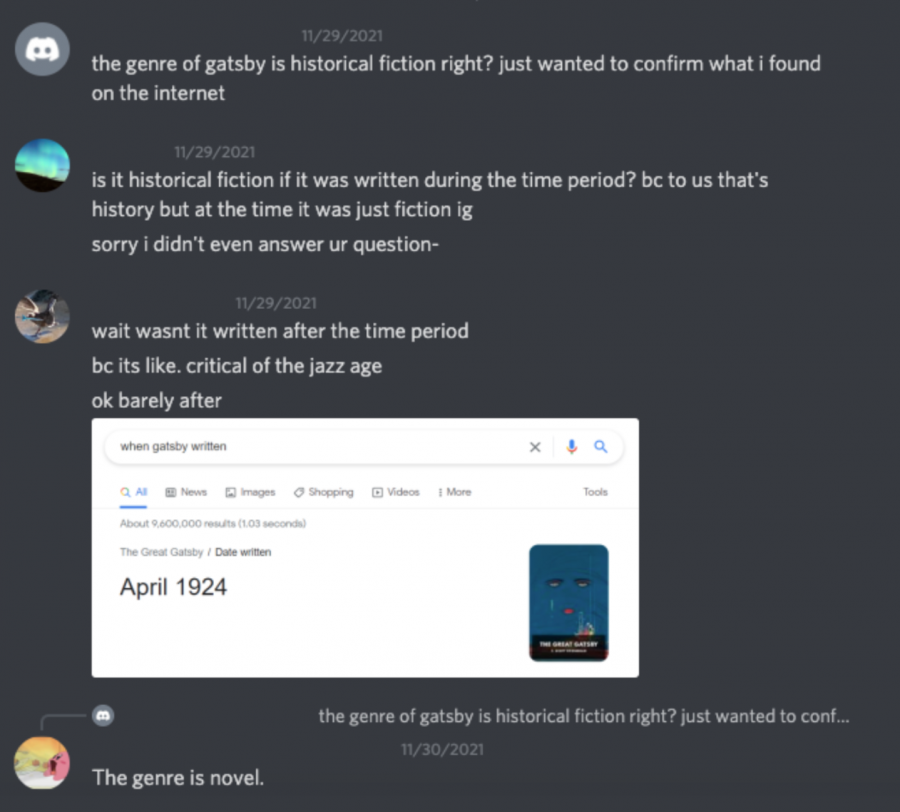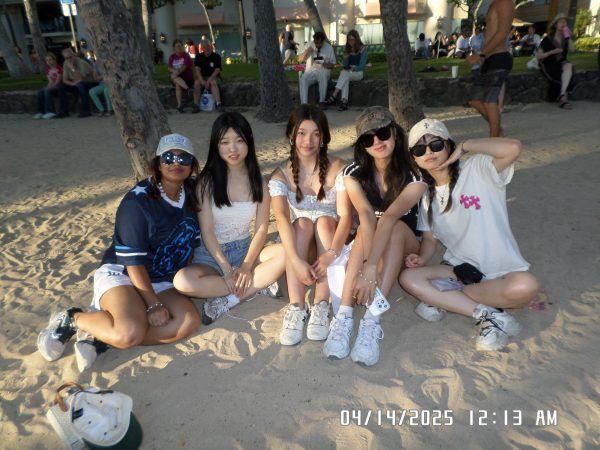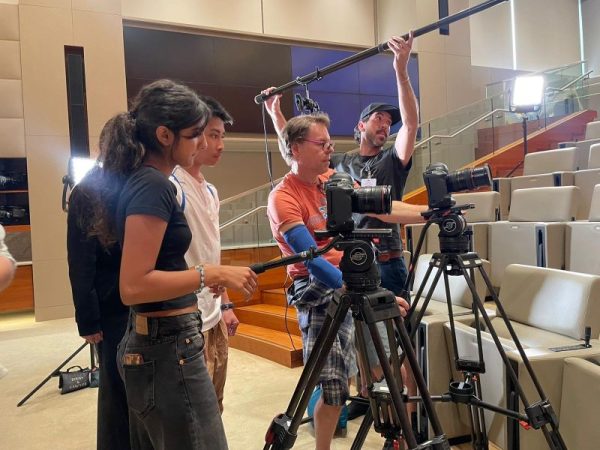Mark Carpenter uses Discord to communicate with students
Looking into the effectiveness of Discord as a communication platform between students and teachers
Honor American Literature students ask questions in Carpenter’s Discord server “Carpenter Official”
From late night homework questions to test preparation assistance, students frequently encounter situations where communication with a teacher is needed outside of school. Currently, the prominent messaging platforms between teachers and students include Schoology, email and Slack, but English and AVID teacher Mark Carpenter prefers a different one: Discord.
Discord was created in 2015 as a platform for users to communicate with one another while playing video games. However, the use of Discord servers has expanded over the years to a platform not only for playing games, but also for building communities, forming clubs and listening to music. Carpenter shares that they “asked students what they would use to communicate with each other” and after realizing that Discord was many students’ platform of choice, they decided to use the platform for academic purposes as well.
Carpenter’s first Discord server, now named “Bruce Club,” was created on March 26, 2020, during the early stages of quarantine. Their motivation for creating a server started during online learning because they were concerned that “interactions [would become] scripted because they were taking place through online mediums,” and that students would “lose some of the spontaneous personal connections.” Junior Janice Lin shares that the Discord server provided a source of essential communication with Carpenter and other fellow students during the pandemic.
“Especially during the early days of the Discord server, I was able to talk to people about a lot of topics,” Lin said. “I also had fun meeting [new] people in the [server] because during quarantine we weren’t able to meet people at school and get to know anyone. If you were missing an assignment or needed help, [other students] could also help you.”
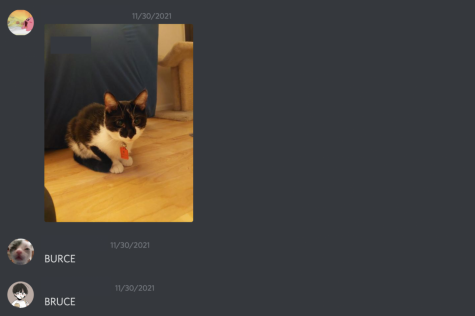
According to Carpenter, their first Discord server eventually “grew beyond any sense of [their] control,” leading them to hand over the control of the server to their students. Carpenter explains that this prompted them to create a new, organized server that was “completely divorced” from the original one. They wanted a method of communication that was accessible to all of their students equally because they “knew that with the social dynamics of the original server, new students would not be on any kind of equal footing with those who have already been [in the server].”
The second Discord server, currently named “Carpenter Official,” has a place for students in each of Carpenter’s classes to discuss books or movies covered in class. Students can ask Carpenter questions about class material in certain channels, while also being able to chat about less serious topics in other ones. Junior Annika Lee states that the two Discord servers provided a unique sense of community that she didn’t experience in other classes.
“You can connect with your teacher better instead of through the formal wall of email,” Lee said. “I have to use formal language and start with greetings [in emails], but while on Discord, I can just ping [teachers or students] and send them a quick message, so it’s more casual in that sense. We can also see [teachers] as a person instead of just as a teacher, which I think is really cool.”
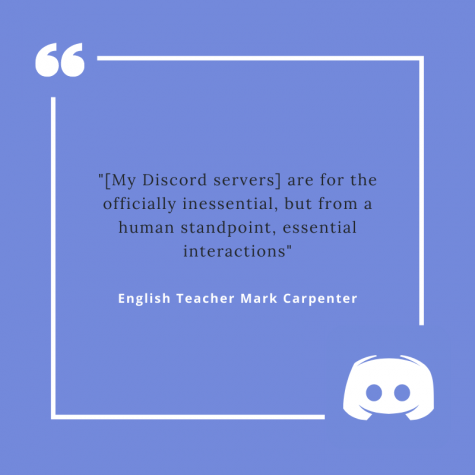
Lee also shares that Discord gave students unique communication opportunities, explaining how, for instance, “[Honors American Literature] students are able to connect with those in World Core classes.” Because Lee is not in Carpenter’s class this year, she explains their server let her become “friends with people who [she wouldn’t] necessarily befriend in classrooms” and “got a sense of the classroom coming together” in a way that wasn’t just restricted to school.
Carpenter describes that their experience on their Discord server has been “great” and believes that even for other classes, using Discord as a communication source is “definitely worth a try.” While Carpenter admits that Discord will not be their primary source of communication, it will continue to help them achieve the classroom goals they believe are important.
“There’s never a point where I’m going to give central school-related information through Discord,” Carpenter said. “Not everybody is participating in it, and if you are not on [Discord] at a certain time, you might not see [the announcements]. So [my Discord servers] are for the officially inessential, but from a human standpoint, essential interactions that might not seem important on their own, but when they are lost, it’s a real loss.”



